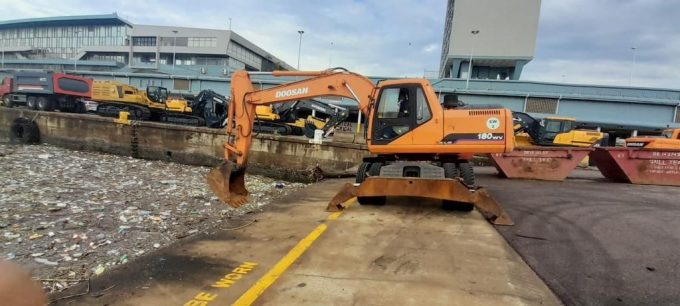Maersk paying $100,000 a day to charter scarce post-panamax box ships
Maersk Line is being forced to pay a premium to secure scarce chartered tonnage for ...

Maersk’s Safari service maintained its scheduled call at South African container hub Durban yesterday, after the carrier had diverted two other ships due to severe infrastructure damage to port access roads in last week’s devastating floods.
The carrier’s decision to send the 8,400 teu Maersk Stralsund to Durban, rather than discharge its Asian imports at Port Elizabeth, came after port operator Transnet confirmed it had managed to reopen part of the access road.
The state-owned authority tweeted: “Phase 1 of Bayhead restoration complete ...
'Disastrous' DSV-Schenker merger would 'disrupt European haulage market'
'Chaos after chaos' coming from de minimis changes and more tariffs
List of blanked transpac sailings grows as trade war heats up and demand cools
Shippers in Asia restart ocean shipment bookings – but not from China
India withdraws access for Bangladesh transhipments, in 'very harmful' decision
'Tariff hell' leaves industries in limbo – 'not a great environment to plan'
Asian exporters scramble for ships and boxes to beat 90-day tariff pause
Temporary tariff relief brings on early transpacific peak season
Pre-tariff rush of goods from US to China sees air rates soar, but not for long
De minimis-induced ecommerce demand slump could cripple freighter operators
Forwarders 'allowing the fox into the chicken run' by supporting 'hungry' carriers
Hapag 'took the bigger risk' when it signed up to Gemini, says Maersk
'Restoring America's maritime dominance' – stop laughing at the back of the class
Volumes set to 'fall off a cliff' as US firms hit the brakes on sourcing and bookings
Navigating tariffs: 'like trying to solve a Rubik's cube while colour-blind'

Comment on this article